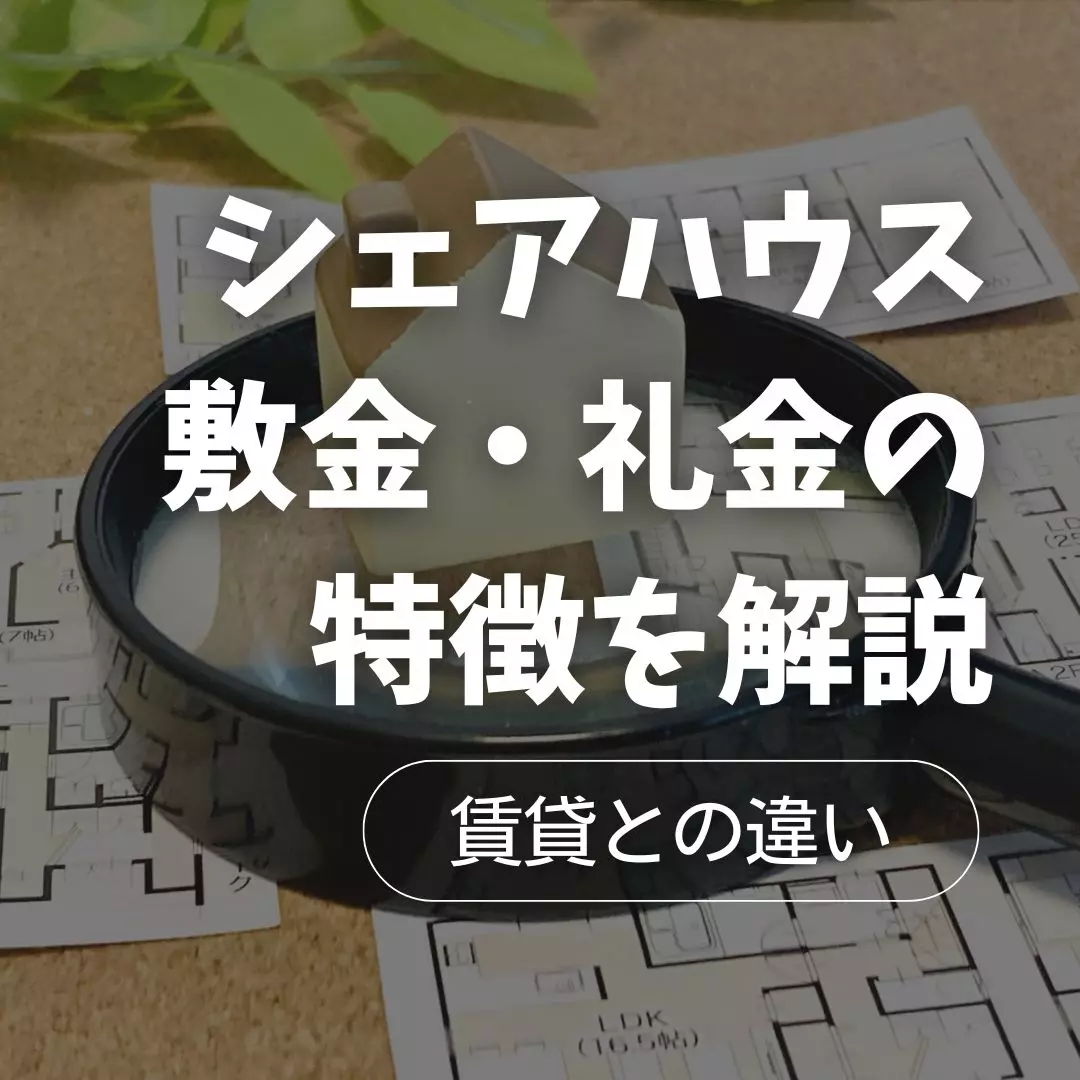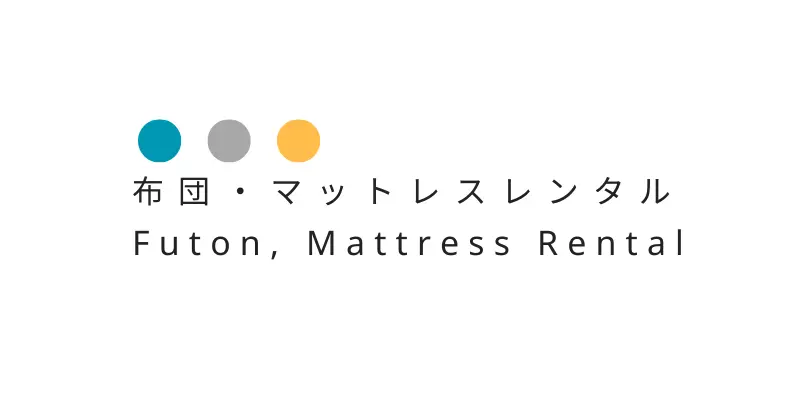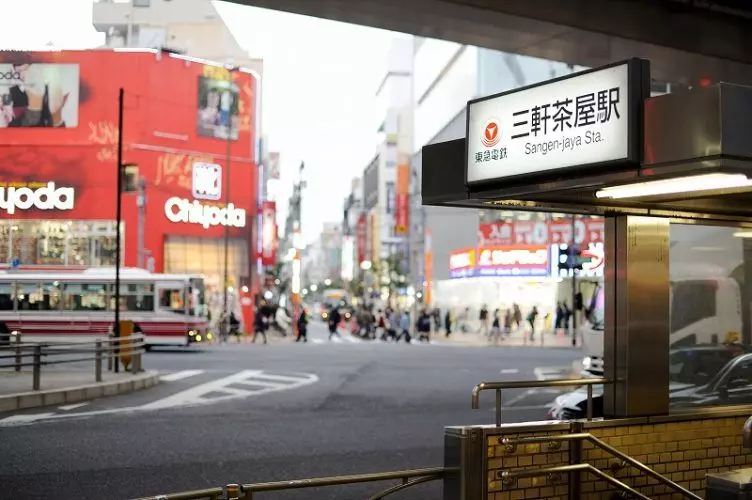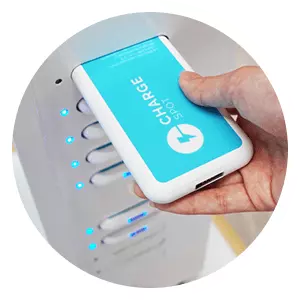“Are there any initial costs other than the security deposit and key money?”
“What is a deposit?”
There are probably many people who have such problems.
When renting a rental property, most places require you to pay a key money deposit.
However, if you live in a shared house, is this key money deposit necessary?
From here, we will introduce the key money deposit and initial costs for share houses.
If you are thinking of living in a share house from now on, please refer to it!
What is the security deposit/key money situation for a share house?
In most cases, you do not have to pay a key money deposit for a share house.
Instead, you may be required to pay a deposit or be charged a cleaning fee when you move out.
A deposit means a deposit, and the details are explained below.
Also, even if you are charged a key money deposit, there are many cases where you can live cheaply.
In addition, the initial costs can be kept to a minimum as furniture, home appliances, and Wi-Fi are available.
Shared housing is recommended for people who want to keep their initial costs down, as there are no major costs other than the rental contract like in regular rentals.
Characteristics of key money and security deposits in share houses
From here, we will introduce the characteristics of key money deposits at share houses.
- First of all, what is security deposit/key money?
- Security deposits and key money are often inexpensive in share houses.
- What is set in place of security deposit/key money
Let's take a look at each.
First of all, what is security deposit/key money?
Key money is an initial fee paid before moving in, and each has a different meaning.
First of all, a security deposit is money you deposit with your landlord and is used for repairs to your room or when you are behind on rent.
Therefore, please keep the room clean and if there are no repairs needed, please return it when you leave.
The key money is a fee paid to the landlord as a thank you for letting you move in, so it will not be returned.
Both have a fixed upper limit on the amount, which is usually one to two months' rent.
Therefore, the higher the rent for a property, the higher the security deposit.
Security deposits and key money are often inexpensive in share houses.
The key money deposit for a share house is often cheaper than for a regular property.
The reason for this is that the rent is originally low.
In a shared house, everyone uses common spaces such as the living room, balcony, kitchen, and bathroom, as well as the plumbing.
Since everyone is sharing and using a common space other than their own room, everyone is splitting the rent for the common space.
The security deposit or key money is set to one to two months' rent.
For this reason, shared houses, whose rents themselves are set low, are cheaper than regular properties.
What is set in place of security deposit/key money
Some share houses do not require a key money deposit.
Instead, you may be required to pay:
- Restoration/cleaning costs
- deposit
Let's introduce each one.
Restoration/cleaning costs
The restoration and cleaning fee is the cost of cleaning and repairing the room when you move out.
The average price is 10,000 to 30,000 yen, but if you use the room properly, it won't cost much.
However, if the room has water facilities such as a toilet or simple washroom, the cost tends to be higher.
Generally, the restoration fee is paid when you move out, but the cleaning fee may be paid when you move in.
If you want to save money on moving out, keep it in a clean condition.
deposit
A deposit is a deposit and is similar to a security deposit.
Like the security deposit, it will be used for room repairs and cleaning costs.
Therefore, if you keep the room clean and there are no repairs needed, you may be asked to come back when you leave.
In rare cases, refunds may not be given or there may be conditions attached to repayment, so it is a good idea to check the repayment conditions when you move in.
The average cost is 10,000 to 20,000 yen, but you may be charged one month's rent.
Initial costs of the share house other than security deposit and key money
Next, we will introduce the initial costs other than the security deposit and key money.
- Various insurance premiums
- key replacement cost
- penalty
Before looking for a property, check how much it will cost.
Various insurance premiums
When moving into a shared house, you will be required to pay the following insurance premiums.
- Residential fire insurance
- earthquake insurance
- Comprehensive housing insurance
Fire insurance is the cost of compensating for buildings and furniture damaged by fire.
In some share houses, this is included in the mutual aid fee, so there may be no initial cost.
Most people will probably have fire insurance, as some share houses require it.
Earthquake insurance is a cost that covers buildings and furniture damaged by an earthquake or tsunami.
Fewer people take out fire insurance than fire insurance, but Japan has many earthquakes, so it would be a good idea to take out insurance just in case.
Comprehensive housing insurance is insurance that comprehensively compensates for damage caused by various disasters and accidents, including fire insurance.
Like earthquake insurance, not many people have it, but it will give you peace of mind if you do.
key replacement cost
As with regular rentals, there may be a key replacement fee.
Most share houses have number-type or dial-type keys, so you are unlikely to be charged.
However, if a key system is used, you will be charged a key replacement fee.
Depending on the type of key, the average price is 10,000 to 20,000 yen.
This may also be charged upon departure.
penalty
A penalty fee is the cost you pay if you move out earlier than the contract.
Basically, there is no penalty, but in some campaigns such as New Life, the contract may stipulate that you will stay for 3 to 6 months or more.
This period varies depending on the share house, but most are between 1 month and 2 years.
The timing to pay is when you move out, but it will be safer if you prepare it in advance.
The average price is one month's rent.
The key money deposit for a share house is cheaper than a typical rental.
I introduced the key money deposit for a share house.
Shared houses require less key money than regular rentals.
In addition, there are cases where there is no key money, and you can only pay a deposit or cleaning fee instead.
If you want to keep initial costs to a minimum, we recommend moving into a shared house, as there is no need to pay for furniture and home appliances.
There are also sharehouses that require minimal interaction so that even people who are not good at socializing can move in without stress.
There are a variety of share houses, so if you are interested, please search on housing information sites.






